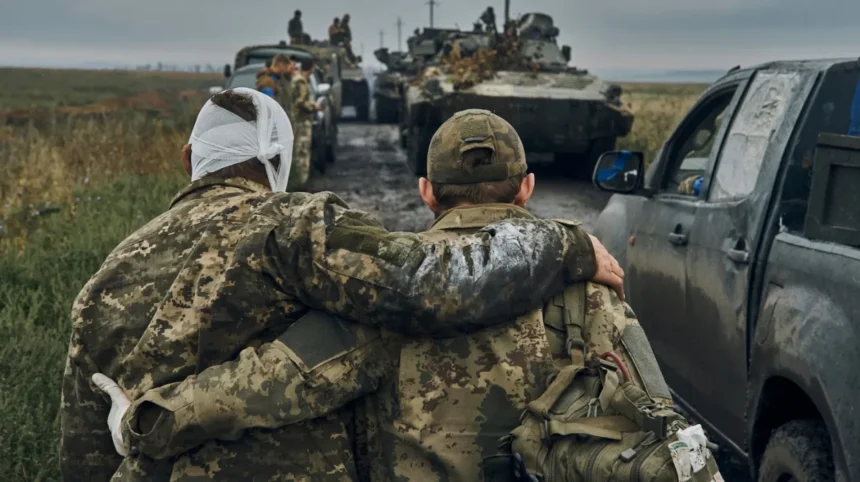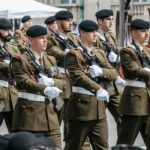Ukraine’s offensive over the Russian border marks a turning point in the war. For the first time in at least a year, it looks like Russia is on the backfoot. The Kremlin was caught unaware and now finds itself forced to pull resources from other areas to deal with an incursion on its own soil. If Ukraine plays its cards right, this could be the beginning of the end of this awful war – but only if the West steps up its support even further. From additional military aid like precision-guided long-range missiles to advanced air defence systems, there is more Western nations must urgently do to maintain the current momentum in Ukraine’s fight.
The myth of Russia’s unstoppable military machine has crumbled. Ukraine, once seen as David against the Russian Goliath, has not only held its ground but counterattacked with surprising success. In 2014, Ukraine’s military was unprepared, undermanned, and infiltrated by commanders with loyalties still tied to the Kremlin. Crimea fell, and large swathes of Donetsk and Luhansk were lost. But that was then.
Read More: EU Reiterates Commitment to Ukraine Kyiv meeting Amidst Growing Concerns
Today, a transformed Ukraine stands at the frontline not just of its own survival, but of Europe’s security and the values of the free world. The country’s resilience is rooted in a tradition of self-organisation – a trait which, while invaluable in moments of crisis, has its limits. This tradition was evident in the Euromaidan protests of 2013-2014, where ordinary Ukrainians, not political parties, drove the movement which ousted a corrupt, Kremlin-aligned president.
Euromaidan was not just a protest; it was a declaration Ukraine would not remain in Russia’s orbit. It was the moment when Ukrainians collectively recognised their enemy and chose a future aligned with Western values. The self-organisation which defined Maidan now fuels Ukraine’s war effort, with citizens uniting to defend their nation with the same resolve that brought down a dictator.
However, this same spirit of self-reliance can be a double-edged sword. While it has enabled Ukraine to withstand Russia’s aggression, it has also hindered long-term reform. The country’s tradition of mobilising in moments of crisis has left deep structural problems unsolved. Corruption remains endemic, the judiciary is compromised, and oligarchs still hold sway.
The West must support Ukraine’s offensive inside Russia – not just to weaken Moscow’s military capabilities, but to signal that Ukraine’s fight is our fight. The time for half-measures is over. If we truly believe in the values of freedom and democracy, we must help Ukraine double down on its offensive. The alternative is not just a frozen conflict, but a festering wound at the heart of Europe.
Also Read: Who is Winning The War in Ukraine? A Comprehensive Analysis
To cripple Russia’s war machine, Western nations must equip Ukraine with precision-guided long-range missiles and advanced artillery systems. These tools will enable Ukraine to strike strategic targets within Russia, disrupting supply lines, dismantling military infrastructure, and forcing Moscow to rethink its aggression. The ability to hit key installations far beyond the frontlines will put immense pressure on Russia’s logistics and command structures, turning the tide of war in Ukraine’s favour.
The West must expand its intelligence-sharing efforts, providing Ukraine with satellite imagery, electronic surveillance data, and other critical information. This would enable Ukraine to plan and execute military operations with greater precision and effectiveness. By enhancing Ukraine’s situational awareness, we empower them to outmanoeuvre Russian forces, identify weak points in enemy defences, and exploit them ruthlessly.
Air superiority is crucial in modern warfare, and Ukraine’s skies are a battleground. The West must fast-track the delivery of advanced air defence systems like Patriot or NASAMS. These systems will protect Ukrainian cities and military assets from aerial attacks, reducing civilian casualties and safeguarding vital infrastructure. Strengthening Ukraine’s defensive capabilities will also allow its forces to focus more resources on offensive operations, pushing Russian forces back and reclaiming occupied territories.
Ukraine’s tradition of self-organisation has been its strength in times of crisis, but it also highlights the country’s need for lasting, institutional reform. Western support must therefore extend beyond the battlefield. We must help Ukraine build the strong institutions it has long lacked, ensuring that it can thrive in peace as well as in war.
The myth of Russia’s invincibility has been shattered. Now is the time to press home the advantage, to ensure Ukraine can defend itself and secure a future free from Russian domination. The stakes are too high for anything less.
Disclaimer: The opinions expressed in this analysis are solely those of the respective analyst/author and do not represent the official stance or views of EU Intelligence.






